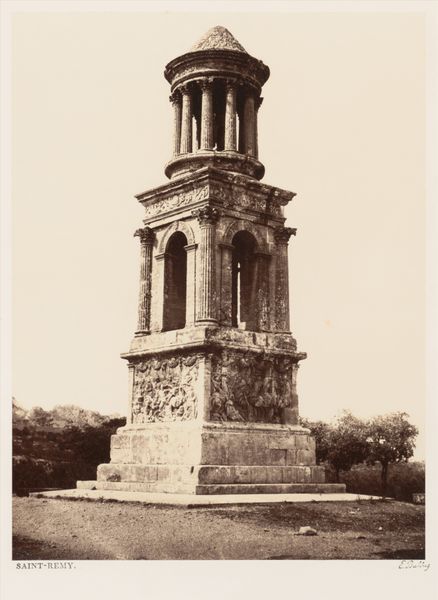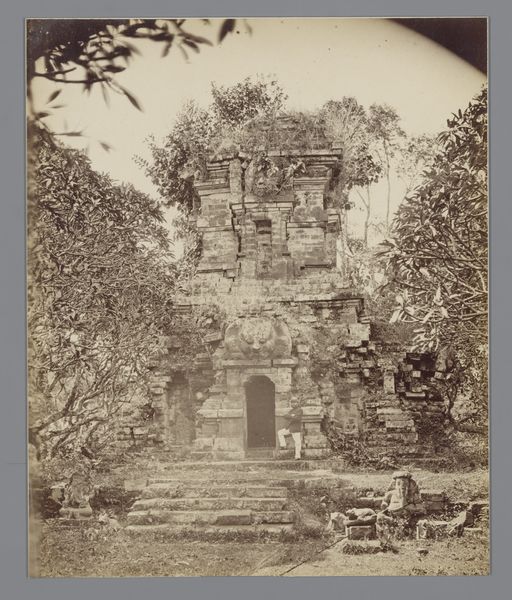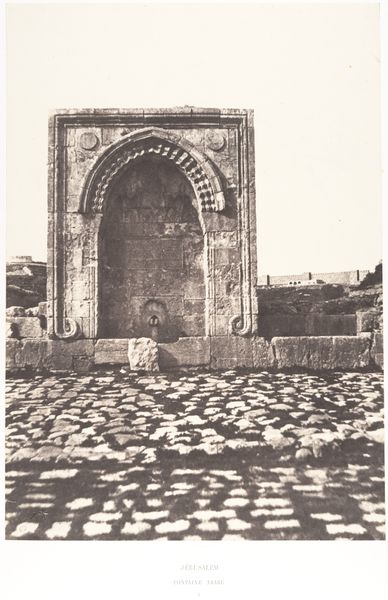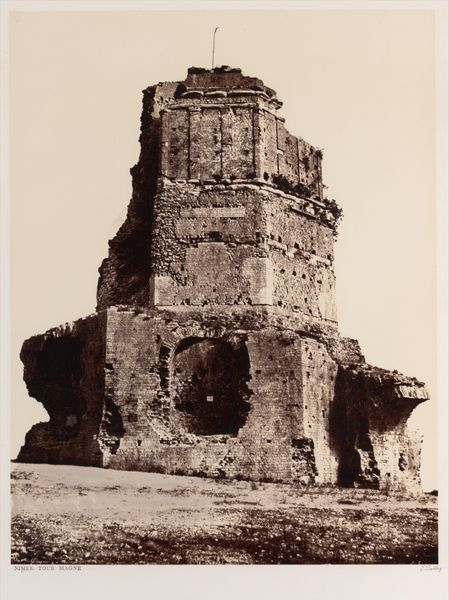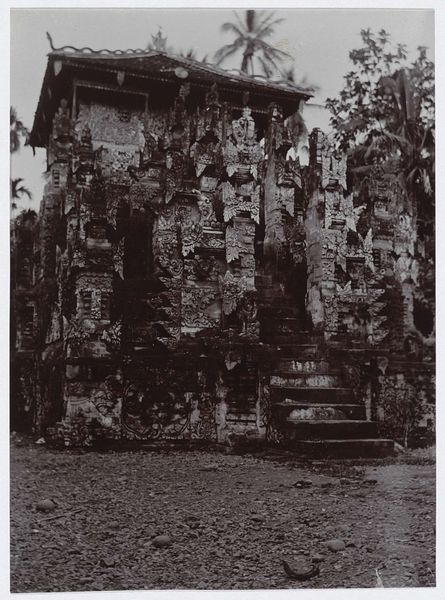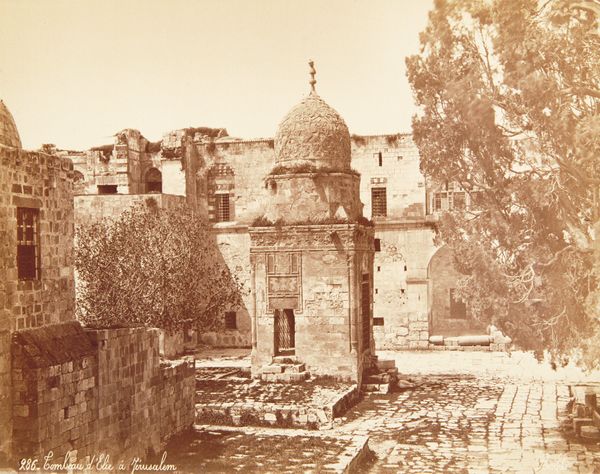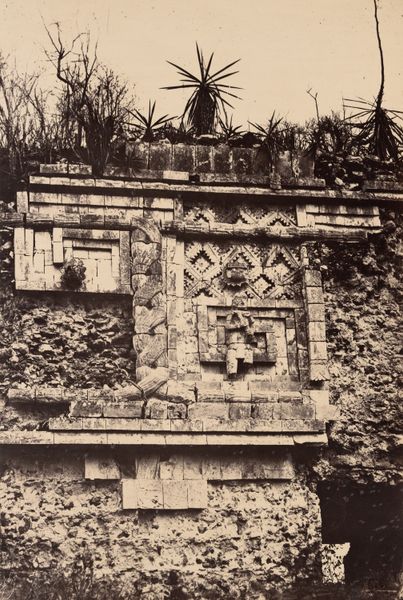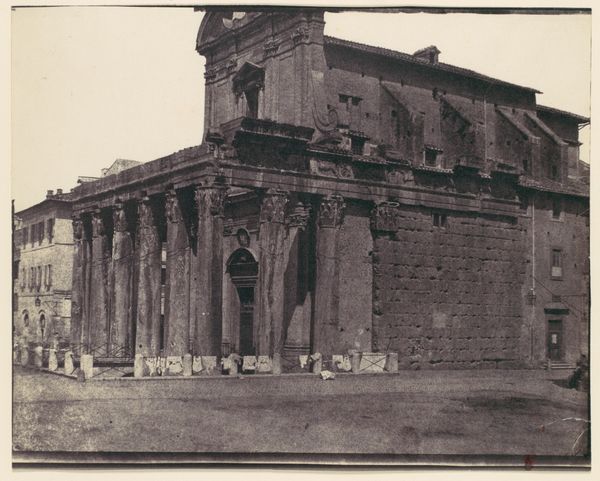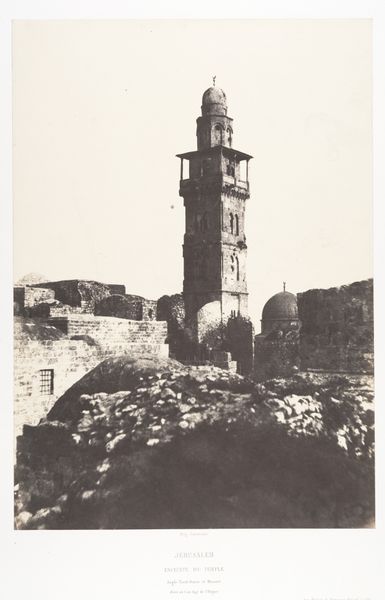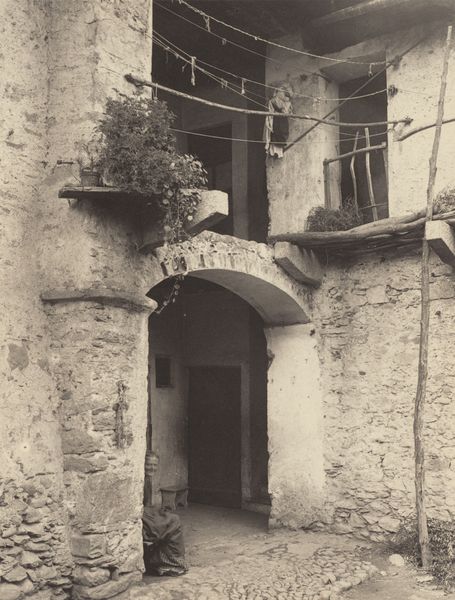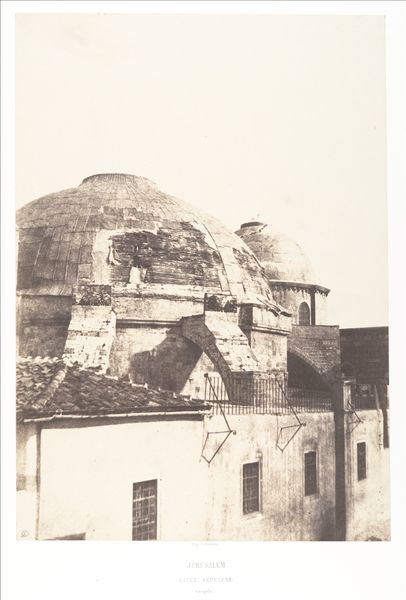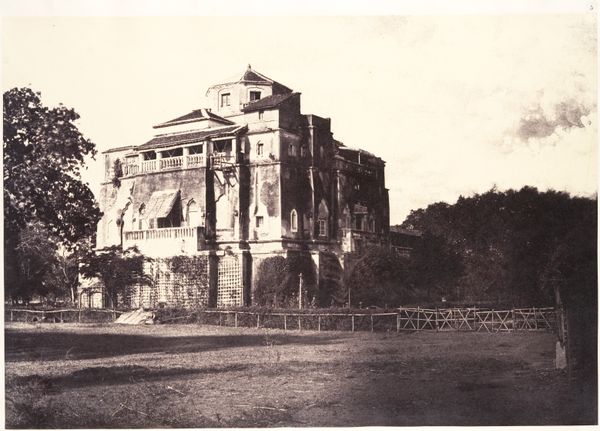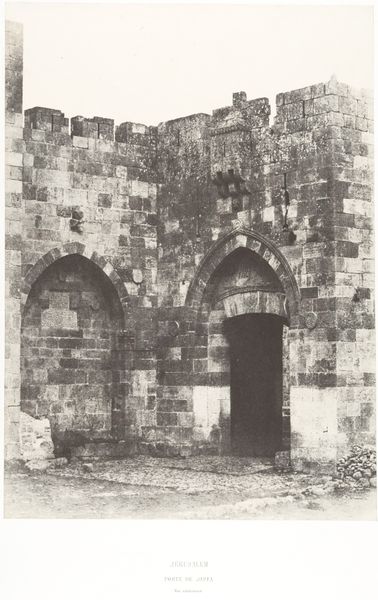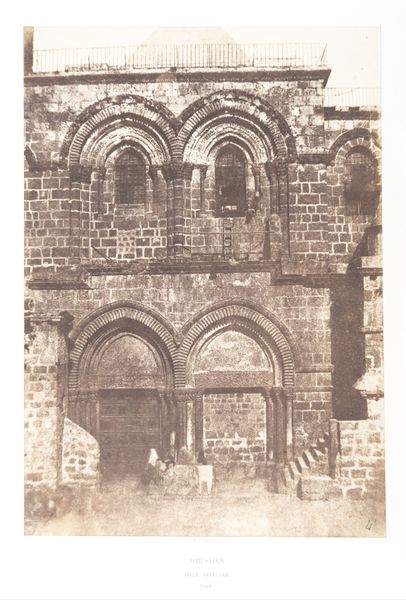
mixed-media, photography, architecture
#
public art
#
mixed-media
#
landscape
#
photography
#
neo-dada
#
black-mountain-college
#
architecture
Copyright: National Gallery of Art: CC0 1.0
Editor: Here we have Robert Rauschenberg’s "Chinese Summerhall" from 1983, a mixed-media work incorporating photography and elements of architecture. The tones feel so faded and aged. What strikes you most about this piece? Curator: I'm drawn to how Rauschenberg positions this architectural fragment within a broader dialogue about cultural exchange and the passage of time. It asks us to consider not just what we see, but also the social and political forces that shape our understanding of these spaces. How might its decay signify not only natural processes, but also colonial histories and their lingering impacts? Editor: I hadn't thought of colonialism. So, the decay of the building represents...the decline of what was? Curator: Potentially. The ruin speaks to disruption. Whose stories are privileged here, and whose are erased through that decay? Consider the context: 1983. What relationship did America and China have? This piece invites a questioning of the romanticization of ruins, urging us to consider them not just as aesthetically pleasing, but also as markers of historical violence and power imbalances. Editor: That’s fascinating! It’s almost like Rauschenberg is asking us to deconstruct the image, to look beyond the surface appeal. Curator: Precisely. And to consider how the lens through which we view art is always colored by our own socio-political awareness. How does Rauschenberg’s choice of subject and medium reflect a critical engagement with these ideas? Editor: This makes me think about how the selection and presentation of this photo can tell a bigger story about globalization, ruin, and perspective. Curator: Indeed. It is important to acknowledge the ways historical power dynamics persist, subtly influencing how we perceive the world and, more specifically, this artwork. Editor: Thank you, I can definitely see how crucial that is for interpreting "Chinese Summerhall". I see it so differently now.
Comments
No comments
Be the first to comment and join the conversation on the ultimate creative platform.
